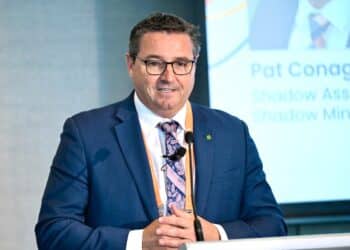SMSF Association chief executive officer Peter Burgess said the retrospective effect of the CSLR levy is a “body blow” for advisers at a time when the government’s stated intention is to grow the advice industry.
Under the scheme, the estimated cost of the first levy period starting on 2 April to 30 June 2024 will be $4.8 million, while for the second levy period, from 1 July 2024 to 30 June 2025, the estimated cost is $24.1 million of which financial advice will be responsible for $18.5 million.
This will add about $1,200 a year to an adviser’s operating costs, with the money to be paid by September 2024.
The biggest legacy payment relates to Dixon Advisory which went into administration in early 2022 before the CSLR was set up and currently has about 2,000 claims before the Australian Financial Complaints Authority.
“We acknowledge the challenges associated with basing the levy on the date the claim was made rather than the date the claim was finalised, but to alleviate the current financial pressures on financial advisers, the government has a perfect opportunity to get behind the financial advice industry and agree to fund a much greater proportion of these legacy claims,” Burgess said.
“This extra cost, when coupled with the higher supervisory levy, will place an intolerable strain on the industry with the potential to force advisers out or deter new entrants.”
He added that as the Quality of Advice Review was partly about how to expand access to financial advice at a time when Australia is undergoing a massive wealth transfer, the retrospectivity aspect of the levy will be counterproductive.
“We are also deeply concerned for licensed accountants who, under a limited license, cannot advise on specific investment products but are included in the financial advice pool and therefore subject to the ASIC supervisory and the CLSR levies,” Burgess said.
“Licensed accountant numbers have significantly declined and we are now at risk of losing this important cohort in the financial advice ecosystem at a time where the focus should be on accessibility and affordability of financial advice.”
More required than ‘venting anger’
Following his statements arguing against the CSLR levy earlier this week, Peter Johnston, executive director of the Association of Independently Owned Financial Professionals (AIOFP), said despite the “anger and frustration” among the advice community, it will take more than “venting our anger” to achieve change.
In a letter to members, seen by ifa, Johnston said that the last decade of Treasury consultation processes has proven to be a “waste of time”.
“They have already made up their mind on policy direction and take no notice of suggestions from the ‘coal face’ of advice professionals. Hence our frustration, Canberra bureaucrats who have little or no contact with consumers are making decisions that directly affect the lives of consumers and small business,” he said.
“The success of our education pathways legislation was achieved without going through the bureaucratic process. Why? Because we dealt directly with an honest politician who sort direction from his party, promised to deliver whilst in opposition and did so when minister without the bureaucrats getting involved to any meaningful way post-election.
“In this instance the minister at the time also agreed within 36 hours to match the policy, that is the power of a bipartisan outcome we must seek.”
The first option for action, according to Johnston, is to get bipartisan agreement “in blood” ahead of the next federal election.
“To achieve a bipartisan outcome, we need to demonstrate political power to unsettle the politicians,” he said.
“To maximise our power you need to engage your clients with the policies that are now directly costing and affecting them, CSLR is the latest one. Angry consumers sending protest emails to their local member will intimidate Canberra. Only you can do this.”
The second option, he said, would be to put together an “election fund” so that the advice community could make strategic donations to political parties in exchange for “policy considerations”.
“As we all know, money speaks all languages, particularly so around election time. The politicians’ jobs are literally on the line, with less than 10 per cent members of the former parliamentary pension super fund, most are worried about their future income position if they lose their seat. Nice time to strike,” Johnston added.
“The question now is are we going to do something about it? Will you put your hand in your pocket and/or engage your clients? If we, the advice community, do not, who else will?”




Stephen Jones is intent of destroying Financial Advice. The term “qualified adviser” sums it all up. Driving Australians to Union Super funds is the clear mission.
Yet another levy for advisers to cover. ARE YOU KIDDING ME?
Stephen Jones you are a DISGRACE